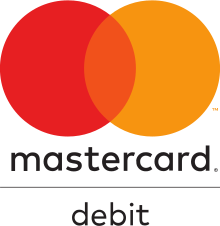Cannabis How-Tos
Cooking With Cannabis: How to Make Cannabis-Infused Food
Go through the basics of cooking with cannabis, like preparation, dosage and possession limits, to help you create delicious and safe cannabis-infused dishes.
Last updated October 4, 2024 | Published on August 27, 2018

Ingesting cannabis
Edible cannabis products come in many forms, with new ones entering the legal market all the time, including hard candies (which may also be considered a form of oral absorption if the candies are dissolved in the mouth, rather than chewed), soft chews, chocolates, baked goods, beverages and sauces. Cannabis sprays, oils or infusions may also be ingested directly or added to food.
Ingesting cannabis can have very different and more pronounced effects than inhaling it. If you’re new to ingesting cannabis, consider ingesting a very small amount and waiting at least an hour to determine a product’s full effect.
Cooking safely with cannabis
Ingesting cannabis can delay its effects, which can lead to consuming more cannabis than intended. Overconsumption often leads to unpleasant effects. So, when making your own edible cannabis products, it is important to understand the correct amount of cannabis to use and to follow tested recipes.
How to prepare cannabis for cooking
There are three important factors to consider when preparing cannabis for cooking: decarboxylation, heat and amount of cannabinoids.
Decarboxylation
Ingesting or cooking with fresh cannabis will not have much of an effect because the THC has to be “activated” with heat. This process is called decarboxylation, or “decarbing”. Typically, THC is decarboxylated before cooking in order to produce the effects of cannabis. It is worth noting that it must be heated slowly to retain any product for the cooking process.
Heat
Whatever recipe and decarbing process you choose, it’s critical to follow the heat recommendations closely to minimize unintended consequences that could pose a risk to your safety. Too little heat will fail to activate the cannabinoids, while too much will burn them off.
Amount of cannabinoids
When you eat cannabis, the cannabinoids (the chemical compounds in the cannabis plant that play a big part in the potential effects you may experience) travel into your digestive system, before being absorbed into your bloodstream. It can be tricky to determine how much cannabis to add to a recipe, and using too much can potentially produce undesired effects, like impairment or confusion. It’s wise to start with a very small amount for cooking and to sample the finished product slowly and in small amounts to avoid overconsumption.
How to Dose Your Edible Dishes
Determining the THC and CBD content in each portion can be tricky when making homemade infusions. While you know the potency of the dried flower you start with, factors like temperature and cooking time affect the final THC and CBD levels.
It's easier to dose with pre-made cannabis oils. Read the product packaging and label to find out how much THC and CBD is in the entire bottle. You’ll then have to do a quick calculation to determine the amount in each drop of oil. Licensed Producers use lab testing to ensure consistent potency, making dosing more accurate with pre-made oils.
Utensils for cooking cannabis
Along with your ingredients, you’ll need similar utensils that are required for regular baking and cooking. The instruments you need will be based on the recipe you choose but some common tools are:
- Mixing bowls
- Measuring cups
- Mixing spoons
- Baking tray
- Cannabis strainer or cheesecloth (for cannabis-infused butter and oil)
- Parchment paper
- Oven thermometer
Using the right tools when baking or cooking with cannabis helps ensure accurate dosing, proper infusion, and overall success in creating cannabis-infused dishes.
More tips for cooking with cannabis
Know the possession limits
When planning to purchase cannabis for cooking, remember that the public possession limit of dried cannabis is 30 grams.
Clear your calendar
With cannabis that’s ingested or absorbed orally, be mindful that residual effects such as drowsiness may be felt for up to 24 hours after consumption.
Keep consistent
Divide your food into even portions so each serving is consistent: Use a ruler to cut brownies or a measuring cup to scoop muffin batter.
Store your cannabis safely
Store all cannabis products in clearly labelled, locked containers to prevent unintentional consumption pets and those under 19 years of age.







